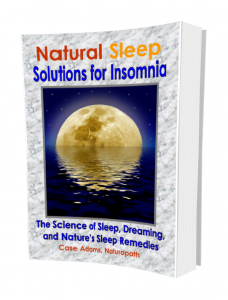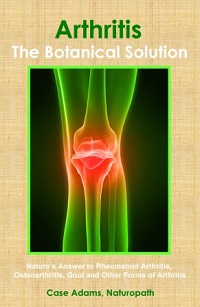Bedtime Computer Use Disturbs Sleep and Circadian Rhythms

Photo by Juan Pablo Olmo
I hope you aren’t reading this article from your bed. Or late at night. If you are, you need to keep reading this article. But then stop, because reading from a computer tablet or laptop in the evening is seriously hurting your sleep.
In this article
We aren’t getting enough sleep
One study reports that almost a third of U.S. adults get less than six hours sleep a night on average. The data was based upon a National Health Interview Survey (NHIS) sponsored by the Centers of Disease Control. The report showed that 40.6 million adult workers reported getting an average of less than six hours. The National Sleep Foundation recommends that adults sleep between 7 and 9 hours.
The study also found that short sleep varied significantly by occupation. Those who work in the manufacturing industry reported the least sleep among occupations, with 34% reporting less than six hours. Night shift workers reported even less, with 44% getting less than 6 hours a night. Night shift workers in the transportation industry had the least amount of sleep of night shift workers, with almost 70% reporting less than six hours a night. Health care night shift workers were close behind, with 52% getting less than six hours a night.
Getting too little sleep is rampant, and insomnia is also at epidemic levels. One out of ten Americans suffer from chronic insomnia according to the CDC. Insomnia is linked to suicides among teens according to other research. And Parkinson’s and dementia are linked to a lack of sleep.
Conventional doctors prescribe numerous pharmaceuticals to promote sleep. But research has found that most sleep medications can be addictive if used for a long duration. Many sleep medicines also cause daytime drowsiness, as well as other adverse side effects. Natural sleep remedies are popular because they are provide relaxation and extended sleep without the side effects found in many pharmaceuticals.
Consider your computer and tablet use
Researchers from Brigham and Women’s Hospital in Boston, Massachusetts have determined that tablets and laptops that emit significant blue ray radiation disturbs sleep in ways not previously known or understood. The study was published in the Proceedings of the National Academy of Sciences.
The researchers tested twelve volunteers for two weeks. They were split into two groups. During five straight nights of the first week, six of the volunteers read ebooks of their choosing on an iPad® device four hours prior to going to bed. The other six read from a printed book of their choosing during the same time.
Some read the printed book during their first week while others read from the tablet in order to randomize the order of their reading.
During the second week, those who read from the tablet during the first week read a printed book while those who read from the printed books the first week read from the tablet during the second week.
Problems with late-night computer use
The research found several effects in those who read from the computer tablet:
• Those reading the tablet took longer to get to sleep
• Those reading the tablet secreted less melatonin
• Those reading the tablet were less sleepy the next evening
• Those reading the tablet had delayed circadian rhythms
• Those reading the tablet had significantly less REM-stage sleep
The delay in circadian rhythms
As I illustrate the science in my book, “Natural Sleep Solutions,” our circadian rhythm is significantly tied to our energy cycles and the quality of our sleep. Those who read the tablet at night were found to have their circadian rhythms delayed by an hour or more.
Less REM-stage sleep
REM-stage sleep has been shown to be a necessary part of our sleep cycle. Those with less REM-stage sleep have been shown to have higher rates of depression, Alzheimer’s, mood disorders and others. Health dangers of reduced REM-sleep include heart disease, diabetes and obesity. Less REM-stage sleep has been linked with earlier death as well.
This doesn’t count daytime sleepiness, which is a health and safety risk. Should we fall asleep driving or at work, that can be very dangerous.
Blue light
The researchers connected the study’s results with the amount of blue light that we are exposed to when looking at computer screens. While the potential disturbance during the day is minimized by the surrounding light, blue light at night has a different effect.
The Brigham researchers measured the blue light of various other computer devices, including laptops, LED monitors, cell phones and other electronic devices. They all emitted similar levels of blue light.
Neuroscientist Dr. Anne-Marie Chang, one of the study authors of the study, confirmed these relationships:
“We found the body’s natural circadian rhythms were interrupted by the short-wavelength enriched light, otherwise known as blue light, from these electronic devices.”
Melatonin and blue light
The reality that blue light exposure decreases melatonin levels was also determined in a recent study from Thomas Jefferson University. The researchers studied 24 volunteers who were tested using three different experiments.
They were exposed to different lamps with different spectra. With greater exposures of the short-wavelengths of 400 to 500 nanometers, the volunteers’ levels of melatonin were decreased.
Light pollution
This of course lends to the notion that too much of certain kinds of light during the evening would be compared to polluting the body. Light pollution not only creates a short-term issue with sleep loss and quality, but also has a long-term effect over time.
To this end, leading sleep researcher Dr. Charles Czeisler added:
“In the past 50 years, there has been a decline in average sleep duration and quality. Since more people are choosing electronic devices for reading, communication and entertainment, particularly children and adolescents who already experience significant sleep loss, epidemiological research evaluating the long-term consequences of these devices on health and safety is urgently needed.”
REFERENCES:
Light-Emitting E-Readers Before Bedtime Can Adversely Impact Sleep. Press Release.
Brainard GC, Hanifin JP, Warfield B, Stone MK, James ME, Ayers M, Kubey A, Byrne B, Rollag M. Short-wavelength enrichment of polychromatic light enhances human melatonin suppression potency. J Pineal Res. 2015 Apr;58(3):352-61. doi: 10.1111/jpi.12221.


















